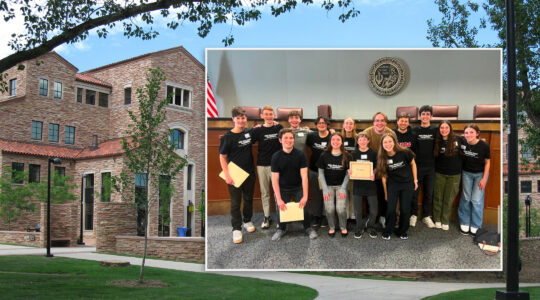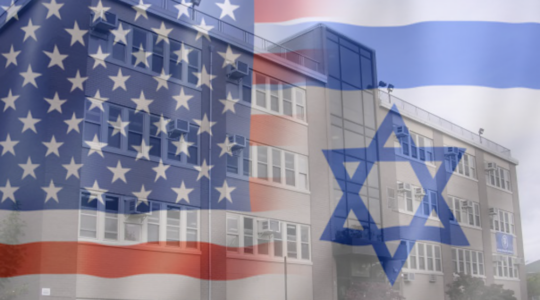“I go to the mall and look for young girls. I stop one and tell her she is very pretty. If she looks me in the eye and says ‘thank you!’ I move on. If she lowers her eyes, shuffles her feet and demurs, I know I’ve found my prey.”
These are the words of a sex trafficker, explaining how he manipulates girls’ vulnerabilities to ensnare them in the sex trade. I heard this horrifying story at a conference called “We Were Slaves: The Jewish Community Unites Against Sex Trafficking,” held recently in New York and reported on in The Jewish Week.
It happens at the mall. It happens in the suburbs, the city and the country, and in all 50 states. Every day traffickers prey on children, typically between the ages of 12 and 14 years old.
Victims are from all socio-economic backgrounds, and yes, some are also Jewish. I was stunned when “Sarah” (her pseudonym), dressed like any other young adult in a stylish cap and denim jacket, related how she had been sex trafficked while a student at an Orthodox Jewish day school. At 13, Sarah was raped in a neighborhood park by a man who forced her into prostitution. She was ashamed and afraid. She blamed herself for being weak. She was turned away by police. They saw her not as a crime victim but as a prostitute. After meeting a man who guided her to social services, Sarah is slowly regaining a normal life.
Sarah’s experience is among the terror-filled stories of many across the country, especially women and children, who are being trafficked in record numbers. Trafficking, defined as when people are sold into dangerous and abusive situations, often as sex slaves, is modern-day slavery, and there are more slaves in the world now than before the Civil War. According to the President’s Advisory Council on Faith-Based and Neighborhood Partnerships there are currently 21 million children and adults enslaved worldwide. The Department of Justice estimates that 293,000 children are at risk of becoming victims of domestic sex trafficking each year.
Trafficking is a $32 billion, high-profit, low-risk industry. Trafficking victims are frequently bought and sold over and over again. Once trapped, they are kept in bondage through a combination of fear, intimidation, abuse, and psychological controls. Women and girls who are caught attempting to leave are routinely beaten and sold to other traffickers; those who manage to leave their trafficker are often picked up by other traffickers within 24 hours.
The National Council of Jewish Women has a long history of fighting sex trafficking. Over 100 years ago, NCJW rescued thousands of immigrant Jewish women and girls from the “white slave trade,” as it was then known. NCJW representatives stationed at Ellis Island and ports of entry across the U.S. met incoming ships to intercept unsuspecting women and girls who thought they were sailing to meet loving husbands or well-paying jobs, but were actually in danger of disembarking into the arms of traffickers. NCJW steered them to safety. Today, NCJW continues to work against sex trafficking.
Because we were once slaves in Egypt, Jews have a familiar understanding of the degradation accompanying slavery, and therefore, may not watch idly as others are violated. Instead, we must protect the sanctity of every life created in God’s image – Jewish and non-Jewish alike. Indeed, we are commanded to redeem the captive, to enforce a fair labor system, and to take care of the most vulnerable among us. Thus, trafficking demands a Jewish response.
There is no other choice: failure to respond to what occurs in our midst constitutes tacit approval that reflects values that will ultimately debase us all. We cannot give back the years and lives stolen from the many Sarahs, but we can protect others from their fate.
Last month was Human Trafficking Awareness Month but the action and fight doesn’t end there. Learn more about what you can do in your community by visiting http://we-were-slaves.org. Begin raising awareness of the problem – now. Before you put away your paper or close your computer, resolve to tell five people about sex trafficking. They will probably be as surprised to hear about it as you were.
Beatrice Kahn is a member of the board of directors of the National Council of Jewish Women, Inc. and is an NCJW New York State Public Advocate. She has worked as an attorney and business owner and lives in New York City. She can be contacted at BeatriceKahn@nyc.rr.com.
The New York Jewish Week brings you the stories behind the headlines, keeping you connected to Jewish life in New York. Help sustain the reporting you trust by donating today.




